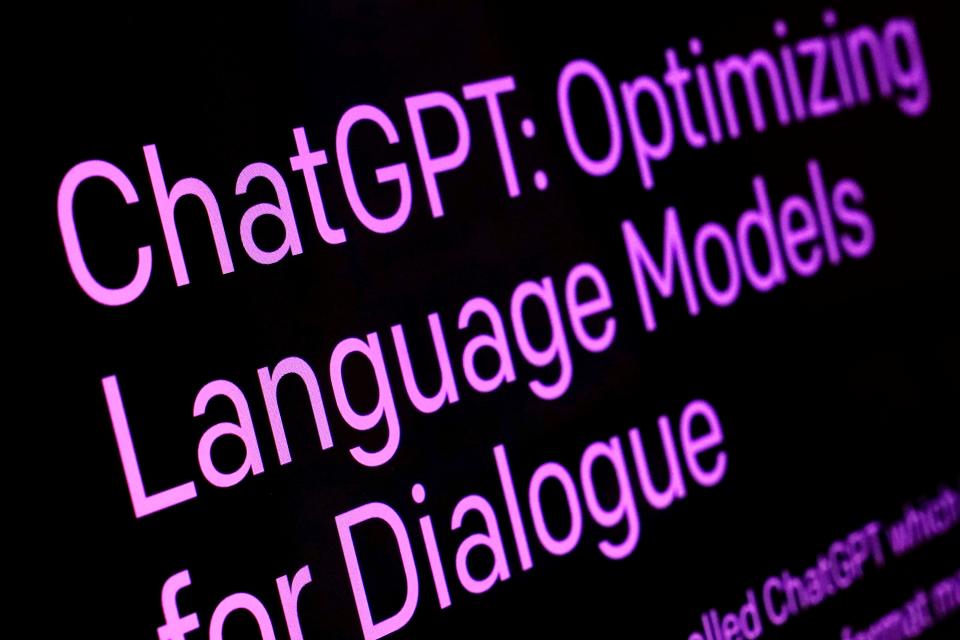Not your parents' Google: Why universities should embrace, not fear, ChatGPT and AI
ChatGPT and its artificial intelligence kin may be one of the best things that’s happened to universities in a long time. That’s important to remember amid all the handwringing (I’ve done my share) in higher education circles over essay writing and academic rigor in light of this AI marvel.
ChatGPT in academics is a complex issue. It's not your parents’ Google, and educational leaders should carefully consider the intersections between the age-old mission of teaching and learning and this new technology.
The first intersection is speed. Google made it possible to find an answer in a matter of keystrokes. ChatGPT further accelerates this by not merely finding an answer but also presenting that answer in a finished product.
AI can give creative minds more time to solve problems
If ChatGPT eliminates rote work, freeing academic minds to pursue new possibilities and apply their time and energy to solve novel problems, it could multiply academic potential and lead to more breakthroughs more quickly. In fields such as biomedical research, the result could be lifesaving.

However, speed could come at the cost of comprehensive understanding. Consider GPS. Enter two points into your phone and you won’t get lost. It’s easy and efficient. Relying on paper maps, personal familiarity and trial and error to get from one point to another is not. But the latter gives us a richer, more thorough understanding of our local geography and how streets, neighborhoods and cities all fit together. Siri doesn’t.
The same applies to ChatGPT and the process of learning. When we start by looking for an answer, we can’t be sure we understand the question. When we rely on powerful computers to scrape an unimaginably vast universe of data and draw conclusions, we may miss the opportunity to understand critical links or discover something new.
AI-created misinformation: ChatGPT made up research claiming guns aren't harmful to kids. How far will we let AI go?
Can we trust OpenAI?: ChatGPT falsely accused me of sexually harassing my students
Another view: John Oliver is wrong to worry about ChatGPT. AI can help us solve complex problems.
The process of discovery helps build knowledge of what’s relevant and what’s not, how the pieces fit together, how one event leads to another and the countless interconnections.
ChatGPT won't replace need for good judgment and critical thinking
Another intersection between higher education and ChatGPT involves critical thinking and technological literacy. ChatGPT is not a substitute for discernment, judgment and critical thought. Answers and materials supplied by ChatGPT could contain bias, lack context or be flat-out wrong – not to mention the questions they raise about privacy, morality and intellectual property.
But the flipside is that ChatGPT presents an opportunity to help students understand how artificial intelligence systems work, how to question easy answers, identify bias, examine dubious claims, apply logic and form critical arguments.
Ivy League isn't everything: Here's what we get wrong about getting a good education.
A shooting happened next to my classroom: How do you teach after gun violence like that?
Finally, ChatGPT may help revitalize the importance of creativity in higher education. Sure, ChatGPT can write a good paper – but it can’t write a great one, because it can’t draw from human emotions or tell a personal story.
It can pull from every work ever created, but it can’t make something completely original. It can find an answer, but it can’t be the first to ask the question.
Opinion alerts: Get columns from your favorite columnists + expert analysis on top issues, delivered straight to your device through the USA TODAY app. Don't have the app? Download it for free from your app store.
Progress requires iconoclasts, creatives and pioneers. It requires a willingness to take chances, be bold and risk failure. We must embrace creativity and humanity and not merely repeat and recycle curated information and ideas.
So, while ChatGPT is great at finding answers, how to best integrate this quantum technological leap into the mission of higher education is a question whose answer will require the sort of originality, boldness and flights of imagination that, at least for now, only humans possess.
Michael A. Fitts is president of Tulane University in New Orleans.
You can read diverse opinions from our Board of Contributors and other writers on the Opinion front page, on Twitter @usatodayopinion and in our daily Opinion newsletter. To respond to a column, submit a comment to letters@usatoday.com.
This article originally appeared on USA TODAY: ChatGPT writes a good essay, but AI won't ruin college – or education

